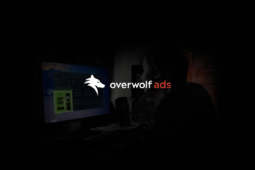FirstPartyCapital's Rich Ashton on Google’s ID ban, Brave, and Gaming TV Ad Spend
by Grace Dillon on 12th Mar 2021 in Podcast
On this week’s episode of the MadTech Podcast, Rich Ashton, managing partner at FirstPartyCapital, joins ExchangeWire’s Lindsay Rowntree and Ciaran O’Kane to discuss the latest news in ad tech and martech.
Together, they discuss:
- Google has dropped another privacy-related bombshell by announcing that they will not “build alternate identifiers to track individuals” who use Chrome (or any other Google products) to replace third-party cookies. The Alphabet-owned company says they will use “privacy-preserving APIs” to fuel their online advertising products once the traditional tracker becomes obsolete on Chrome by February 2022.
The move means that Google and their Ads platform will no longer support the use of any form of identifier (such as unified IDs or email addresses) for targeted advertising. The firm backed-up the move by saying that they do not consider these technologies “a sustainable long-term investment”, and that they “do not expect these solutions [to] meet rising consumer expectations for privacy, nor [to] live up to rapidly evolving regulatory restrictions”.
Google cited increasing distrust amongst consumers towards targeted advertising as the reason behind the decision, but commentators are sceptical that this is the only motive. Some believe that the tech giant is using the guise of privacy-consciousness to bolster their own advertising ecosystem and quash competition.
- Privacy-centric internet browser Brave has announced it will launch its own search engine. Brave Search will be built on pre-existing search engine Tailcat, an off-shoot of now-defunct German search engine Cliq, which comes with a ready-made (albeit less granular) web index.
Brave founder and former Mozilla executive Brendan Eich says that the new search engine will adopt the same “default anonymous user model” as the Brave browser, and will not collect IP addresses nor track or profile any of its users. That said, Eich revealed that some users will be able to opt-in to anonymous data collection for the purpose of improving search result accuracy.
The company plans to launch the browser, which already has a waitlist, within the first half of this year, and is currently exploring how to build a paid, ad-free search engine and an ad-supported alternative at the same time. Brave’s development team is also building a new feature called Goggles, which will allow users to filter search results.
- The gaming industry experienced a boost last month after video game companies increased their TV ad spend 34%, according to a report from VentureBeat and iSpot.tv. Nintendo led the pack in both spend and airings, accounting for 81.3% of the to USD $16.6m (£11.9m) total and accruing 74.1% of all airings. The Super Mario creator shed an estimated USD $13.5m (£9.7m) on 21 adverts that aired 3,334 times. 20% of the firm’s budget was dedicated to a single airing during the Super Bowl Kickoff Show.
Sony’s Playstation spent the second highest amount of the 15 gaming brands surveyed, investing around USD $1.9m (£1.4m) on three ads that accrued 96.9 million impressions from 359 TV airings. HandyGames came in third, spending USD $646,833 (£464,960) on a single ad that aired 76 times, resulting in 12.3 million impressions. GameFly ranked fourth, generating 26 million impressions from 631 airings of four ads that cost an estimated USD $361,776 (£260,053), and 704Games came fifth after spending USD $139,716 (£100,431) on one ad spot.
Ad SpendGamingGoogleIdentityTV








Follow ExchangeWire